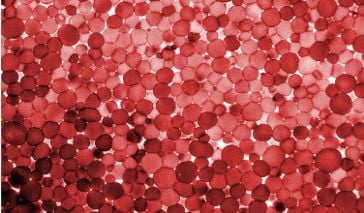Blood in semen, or hematospermia can be rust colored, bright red, or coffee brown, and is often benign. It commonly results from an injury incurred during prostate surgery or a vasectomy, for instance. But it could also be indicative of other problems, including blockages, infection and inflammation, injury, surgical procedures, and medical conditions.
Blood in Semen Causes
Medical Procedures
Blood in semen is common after procedures are performed on the prostate or elsewhere in the male reproductive system. On average, more than 80 percent of men who've had a prostate biopsy find blood in their semen, and it typically lasts for three to four weeks. After a vasectomy, hematospermia can last a week or more.
Infection
Outside of these procedures, hematospermia in men under the age of 40 is often due to infection of the reproductive system or urinary tract. Sexually transmitted infections (such as chlamydia or gonorrhea), as well as inflammation of the prostate, urethra, epididymis, or vas deferens, can all cause blood to leak into semen from the glands or ducts. In these cases, there will likely be other symptoms, including:
- Fever
- Pain during urination
- Trouble urinating
- A strong urge to urinate
- Burning sensation when urinating
- Passing frequent, small amounts of urine
- Cloudy urine
- Foul-smelling urine
- Pelvic pain (women)
- Rectal pain (men)
Cancer
Rarely, blood in semen can be caused by cancer—most frequently prostate cancer, but testicular cancer, bladder cancer, or seminal vesical cancer can also cause the appearance of blood in semen. In these cases, it might be accompanied by other symptoms, including:
- Swelling or tenderness in the groin
- A feeling of heaviness in the scrotum
- Fever
- A dull pain in the lower abdominal area, groin, or lower back
- Fatigue
- Lump under the skin
- Weight changes (loss or gain)
- Changes in bowel or bladder habits
- Fevers or night sweats
Trauma
Blood can appear in semen following a pelvic fracture, injury to the testicles or perineum (the region between the scrotum and the anus), or rigorous sexual intercourse and masturbation. Additional symptoms may include:
- Pain in the scrotum or abdomen
- Bruising or discoloration of the scrotum
- Difficulty urinating
- Pain with ejaculation
- Penis discharge
- Swelling or tenderness in the groin
- Swelling or tenderness in the scrotum
Blockages
Blockages along both the urinary and reproductive tract can cause blood vessels to break and leak into the semen. In men over 40, the most common blockages are caused by prostatitis or benign prostatic hyperplasia (BPH). Other, less frequent causes include urethral stricture, ejaculatory duct obstruction (a congenital condition), and stones in the ureter or prostate. In these cases, additional symptoms include:
- Pain with ejaculation
- Difficulty emptying the bladder
- Weak urinary flow
- Urinary retention
- Trouble starting the urine stream
- Burning sensation while urinating
- Frequent urination
- Lower abdominal cramps
- Groin or lower back pain
Medical Conditions
Congenital bleeding disorders, such as hemophilia (the blood's inability to clot normally), can cause blood in the semen, particularly if an injury has occurred to the testicles, prostate or perineum. While hemorrhage is the most common symptom of a bleeding disorder, others include:
- Bruising
- Buildup of blood in the testicles, prostate, seminal vesicles or other male reproductive organs, which in turn can cause pain, swelling, tenderness, and fever
References
Barry MJ, & Collins MM. (2011). Benign prostate disease and prostatitis. In: Goldman L, Schafer AI, eds. Cecil Medicine. 24th ed. Philadelphia, Pa: Saunders Elsevier; 2011: chap 131.
Small EJ. Prostate cancer. (2011). In: Goldman L, Schafer AI, eds. Cecil Medicine. 24th ed. Philadelphia, Pa: Saunders Elsevier.
Gerber GS, & Brendler CB. (2007). Evaluation of the urologic patient: History, physical examination, and the urinalysis. In: Wein AJ, ed. Campbell-Walsh Urology. 9th ed. Philadelphia, Pa: Saunders Elsevier.


